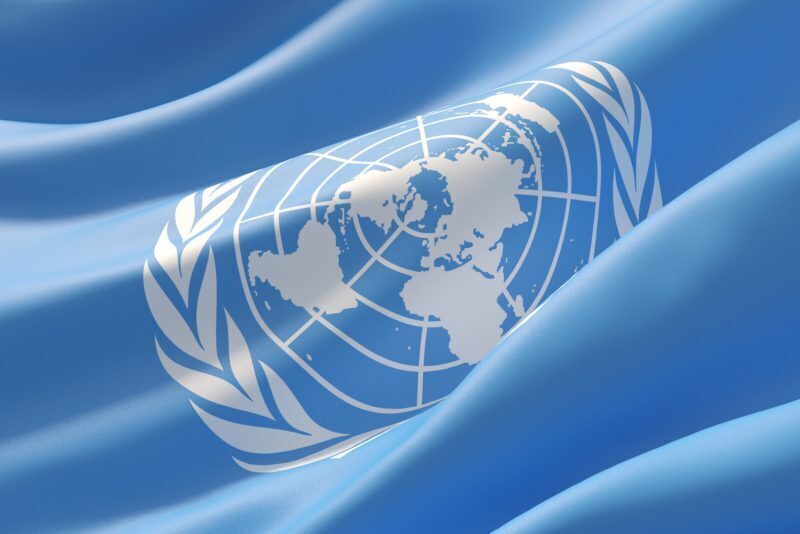-
- Market Research
- |
- CBD Near Me
- |
- Giveaways
- |
- Newsletter
- |
- Contact
- |
- Advertise
- |

Here’s the latest CBD news:
- The US is pushing back against a footnote made by the World Health Organization to remove certain CBD extracts from international drug control.
- The European Union has yet to tip its hand as the vote on changes to the global drug treaties inches closer.
US Against Suggested WHO Changes To International Drug Treaties
The United States is not in favor of a World Health Organization (WHO) proposal to remove CBD extracts with less than 0.2% THC from international drug control.
US Ambassador, Jackie Wolcott, spoke virtually on Thursday during a final meeting of the UN Commission on Narcotics Drugs in Vienna, Austria. She said the proposal to exclude low-THC cannabis products, which mainly pertains to CBD, from the 50-year-old treaty could “introduce legal ambiguities and contradictions that would undermine effective drug control.”
According to Wolcott, the US favors removing cannabis from Schedule 4 of the Single Convention on Narcotic Drugs (1961), but not on board with the footnote to exempt CBD. She further said the CBD footnote was “outside the scope of the scheduling process,” and other WHO suggestions could “undoubtedly lead to further cannabis abuse” by unintentionally authorizing THC extracts. The UN will vote in December on what changes to make for cannabis scheduling in international narcotics treaties.
Meanwhile, the US reiterated support to remove cannabis from Schedule 4 of the 1961 convention. Schedule 4 drugs are “particularly liable to abuse” and don’t have “substantial therapeutic advantages.”
The specific recommendations from the WHO are as follows:
- Recommendation 5.4: suggests deleting the “extracts and tinctures” category from Schedule 1 of the 1961 convention, arguing that these are considered “preparations” and, therefore, already covered by the treaty.
- Recommendation 5.5: asks for the footnote to be added to the cannabis entry to clarify that preparations containing “predominantly” CBD and up to 0.2% THC are not under international control.
While not explicitly listed in the international drug control treaties, CBD is covered by the 1961 convention, both as a “preparation” and as an “extract or tincture” of cannabis.
Wolcott said that the United States would support just two of the six recommendations:
- Recommendation 5.1: to delete cannabis from Schedule 4 of the 1961 convention but keep it in the less-restrictive Schedule 1.
- Recommendation 5.4: to delete “extracts and tinctures of cannabis.”
“If adopted, at best, they would introduce legal ambiguities and contradictions that would undermine effective drug control, and at worst they could result in the exclusion of control of all THC derived from cannabis cultivated for industrial purposes and THC derived from leaves separated from the cannabis plant,” said Wolcott. “This would undoubtedly lead to further cannabis abuse.”
Unclear Where EU Stands As Vote On Global Drug Treaties Approaches
At the same commission, a delegate for the European Union (EU) wouldn’t say how EU countries would vote on the proposed changes to the treaties, but they do support a December vote on the proposals.
Those present at the meetings Thursday closely watched for clues about how parties would vote, but could not decipher where the EU stands. The upcoming vote will change how cannabis and related substances are classified in the Single Convention on Narcotics Drugs (1961) and the Convention on Psychotropic Substances of 1971.
CBD is covered by the 1961 convention as a ”preparation” and an “extract or tincture” of cannabis, but not specifically listed in the treaties. The recommendations were made by the WHO early last year with the vote coming up this December.
Last December, the European Commission published a proposal on how EU member states should vote on the WHO recommendations. However, it has recently said it was revising those positions.
Those EU member states scheduled to vote as members of the UN Commission on Narcotic Drugs include:
- Austria
- Belgium
- Croatia
- Czech Republic
- France
- Germany
- Hungary
- Italy
- The Netherlands
- Poland
- Spain
- Sweden







